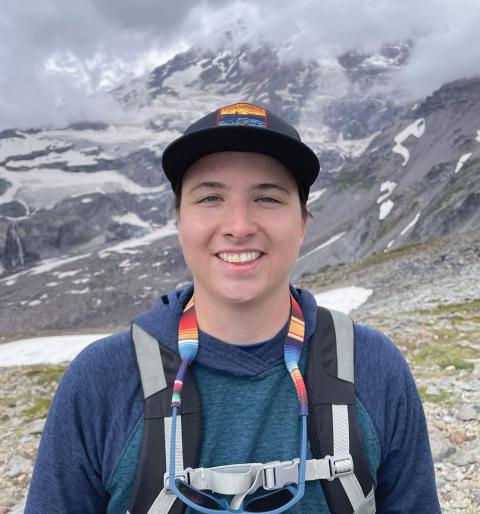
Dakota Mako is an environmental sciences: ecosystems science major from Moultonborough, New Hampshire. He is working with Professors Heidi Asbjornsen and Mark Ducey on their New Hampshire Agricultural Experiment Station research.
COLSA: Tell us about your research in as non-technical language as possible.
Dakota Mako: I have worked as a research assistant with Dr. Heidi Asbjornsen’s Ecohydrology Lab since fall of my sophomore year. In this position I have worked with most of the graduate students in the lab on projects ranging from agroforestry to tree syrup production. I primarily spent most of last year working with doctoral candidate Sam Zuckerman on his greenhouse project, which studied the potential for assisted migration of tree species to the Northeast. In this experiment trees of local genotypes were compared to those from hotter and drier climates under varying environmental conditions.
This summer I had the opportunity to work as a forestry technician with Dr. Mark Ducey’s Forest Biometrics Lab. In this position I conducted fixed radius plot sampling across White Mountain National Forest to identify long term growth trends of northern hardwood forests. This project was done in tandem with master’s student Hunter Moore where we were able to take mobile LiDAR imagery of many of the plots.
COLSA: What challenge does your research seek to address?
Dakota: With the existential threat of climate change to ecosystems around the world the Ecohydrology Lab’s assisted migration study aimed to identify how forested areas of the northeast might react to a changing climate. My work with the Forest Biometrics Lab focused more on understanding how northern hardwood forests’ composition has changed over time.
COLSA: Your work elevates research supported by the NH Agricultural Experiment Station. How will it benefit people, communities and/or the natural environment in New Hampshire?
Dakota: Through my work in the Forest Biometrics Lab, we are gaining a better understanding of how our forests have grown traditionally to present and with the Ecohydrology Lab’s work we are looking at the direction these forests could be going due to climate change. This will hopefully help communities in the northeast better manage forests for the future.
COLSA: What are you learning as a result of you experience?
Dakota: Through my experience working with research labs at UNH I’ve learned traditional field work skills such as navigating to remote sites across the state and conducting forest inventory. I’ve also learned more lab-based skills such as making leaf stomata slides and observing and photographing them through a microscope. More broadly I’m learning about the scientific process as a whole and how to conduct good research.
COLSA: What should prospective students know about UNH?
Dakota: UNH is awesome no matter who you are or where you come from. There are endless opportunities on this campus for the taking. Faculty here want you to succeed and are available when you need help. There are also plenty of opportunities to work with faculty on research that you are passionate about. Non academically there is a club or organization for whatever niche hobby or interest you have with other people who are also passionate about it.
COLSA: What do you love most about UNH?
Dakota: I love how UNH offers the amenities of a big school but still maintains a small community. Being the state’s land grant, they have endless opportunities but within each of those opportunities is a small community that you can become a part of.
The NH Agricultural Experiment Station helps improve New Hampshire's lives, livelihoods and landscapes through research and discoveries that sustain agricultural, food and forested ecosystems and supporting the development of future scientists. The Station research described above is based on work with joint funding from the USDA National Institute of Food and Agriculture under McIntire-Stennis award numbers 7005871 and 7003549 and the state of New Hampshire.